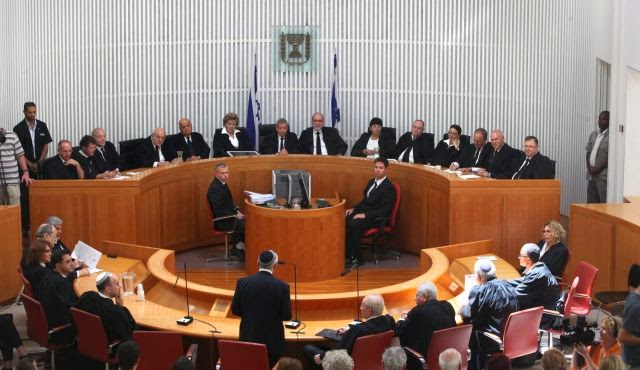|
Getting your Trinity Audio player ready...
|
Judicial Crisis in Israel: Supreme Court Inauguration Threatened by Political and Legal Standoff
A significant political and legal storm is brewing in Israel as the country prepares for the official inauguration of Justice Yitzhak Amit as President of the Supreme Court. The grand ceremony, scheduled for Thursday evening at the President’s Residence, is now at the center of a growing constitutional crisis. As previously reported by VIN News, key figures in the Israeli government, including Prime Minister Benjamin Netanyahu, Justice Minister Yariv Levin, and Knesset Speaker Amir Ohana, are set to boycott the event in protest against Amit’s appointment process. This decision underscores deep political and ideological divisions surrounding judicial authority in Israel.
According to VIN News, the root of this conflict lies in recent investigations into potential judicial conflicts of interest involving Justice Amit. Justice Minister Levin has openly rejected the legitimacy of Amit’s appointment, a stance that aligns with the broader efforts by right-wing factions to reform Israel’s judiciary. Levin’s refusal to recognize Amit’s ascension to the court’s top position is a direct challenge to the established judicial selection process, further complicating an already contentious legal landscape.
Adding to the complexity, there remains a significant legal obstacle that could potentially derail Amit’s appointment. As stipulated under Section 12 of Basic Law: The President, any official document signed by the President of Israel requires a countersignature from the Prime Minister or a designated minister. As reported by VIN News, Prime Minister Netanyahu is seriously considering withholding his signature on Amit’s appointment, a move that could effectively block the transition of power within the judiciary. No other minister has been authorized to sign in his stead, leaving the appointment in a state of legal limbo.
Justice Minister Levin, who holds partial authority in the matter, is also expected to refuse to provide his signature, further exacerbating the impasse. As noted by VIN News, this situation may force proponents of Amit’s appointment to seek judicial intervention, potentially petitioning the Supreme Court to compel the government to fulfill its procedural obligations. Such a petition would add another chapter to the ongoing power struggle between the executive and judicial branches.
Legal experts cited by VIN News suggest that if Netanyahu refuses to sign the appointment, an alternative strategy may involve bypassing the countersignature requirement by publishing Amit’s appointment in Israel’s official government records. Under this approach, the appointment could gain legal standing despite the absence of executive approval. However, such a maneuver would likely provoke immediate backlash from right-wing organizations, who may then petition the Supreme Court to invalidate the move based on its procedural irregularities.
Conversely, if Amit’s appointment is not published in the official records, legal challenges are expected to be filed against Netanyahu or any other responsible minister, seeking to compel them to sign the document. As VIN News highlights, this would likely escalate into a full-scale constitutional confrontation, further destabilizing Israel’s already precarious political and judicial equilibrium.
This unfolding crisis marks yet another significant clash between Israel’s executive and judicial branches, reinforcing the deep-seated tensions that have characterized the country’s ongoing constitutional crisis. The outcome of this battle will not only shape the immediate future of the Supreme Court’s leadership but could also have lasting implications for Israel’s judicial independence and the broader balance of power within the state.
As the situation continues to develop, the legal and political ramifications of this standoff will be closely watched by both domestic and international observers. The next steps taken by Netanyahu, Levin, and the judiciary will determine whether Israel’s democratic institutions can withstand yet another test in an era of deep political division.





The treasonous Israeli deep state threatens Israel’s democracy.
There is no “constitutional” crisis. Israel does not have a constitution, merely a radical self-aggrandizing leftist judicial cabal which has unilaterally arrogated to itself nonexistent totalitarian authority.